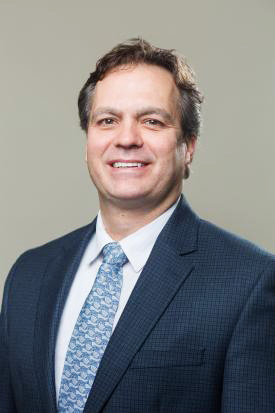NMU formally announced Monday that the Educational Access Network (EAN) is up and running with support from Michigan and hopes to expand access to the entire Upper Peninsula as quickly as possible.
 The expansion of the EAN will widen LTE coverage to encompass communities as well as businesses and students in K-12 school districts in need of internet access for educational purposes.
The expansion of the EAN will widen LTE coverage to encompass communities as well as businesses and students in K-12 school districts in need of internet access for educational purposes.
Setting up the network in the eastern Upper Peninsula will take a little longer than the rest of the area because NMU can’t have the signal bleed into Canada due to Federal Communications Commission regulations.
“This has been a project that we have had in the works really for years,” NMU President Fritz Erickson said.
The project began to pick up speed over the last year and a half, Erickson added. For those living in Michigan and particularly in the Upper Peninsula, the EAN is meant to help citizens dealing with what is commonly known as the “digital divide” get access to reliable internet.
“I’ve heard people talk about how access is such an important thing. It’s like electricity, and yet very few people have gone out and done something to directly address the problem,” Erickson said.
NMU is addressing the digital divide specifically for purposes of education, recognizing that every student needs access, Erickson said. In the Upper Peninsula there are 20,000 households that don’t have any form of access to broadband and only 75 percent of households that do have internet access have broadband at speeds lower than 6 Mbps.
“We wanted to solve that problem around education by providing educational opportunities because, just as we know that the internet is an important economic driver, so is education,” Erickson said. Education does not just involve traditional 18 to 22-year-old undergraduate students, Erickson said. It also involves K-12 students and a much larger adult community.
“Learning is a constant process and we want to make it easy, accessible and affordable for people to continue lifelong learning,” Erickson said.
The EAN will provide two things—regular degree courses that would normally be offered online as well as personal and professional development courses that do not contribute to a degree, Erickson said. The EAN reaches out to three groups, Steve VandenAvond, vice president of Extended Learning and Community Engagement, said.
First, the EAN has contributed to the building of NMU’s newly created Global Campus, VandenAvond said. For students interested in online degrees, certificates or other academic credentials, they can register to NMU’s Global Campus and receive access to the wireless system included in tuition just like regular on-campus students.
The second way is through personal and professional development courses. For students seeking education outside of a formal degree, they can pay a subscription fee to the online learning community of $15 per month. For access to the NMU LTE system, it is an additional $19.95 a month.
The third area is educational and other partners, VandenAvond said.
“The network provides educational access to K-12 students, to college students and to university students who aren’t at NMU but live in the U.P.,” he added.
Students seeking affordable internet for education from another school can gain access to the LTE system for $19.95 a month. For an extra $5 a month they can up the speed of access.
Gov. Rick Snyder has been supportive of NMU’s efforts put into the EAN initiative by working with the FCC to expand access to a wide range of people, David Nyberg director of Snyder’s Northern Michigan Office, said.
“Today is really memorable because, once again, Northern is cementing its role and reputation as an institution that is at the cutting edge and forefront of bringing technology and connectivity to its students. It has been a nation-wide leader and continued to be that,” Nyberg said.
Connections with local school districts started this fall with a collaboration between NMU and the Marquette Area Public Schools, Superintendent Bill Saunders said. Looking into innovation of technology brought up the issue of accessibility.
“This really came along at the most opportune time for us as a K-12 district,” Saunders said. “By bringing us on as a K-12 partner, it was a cost-effective plan that we’re able to put in place that we could help sell to the 3,200 or so kids that we have to give them that home access.”






















